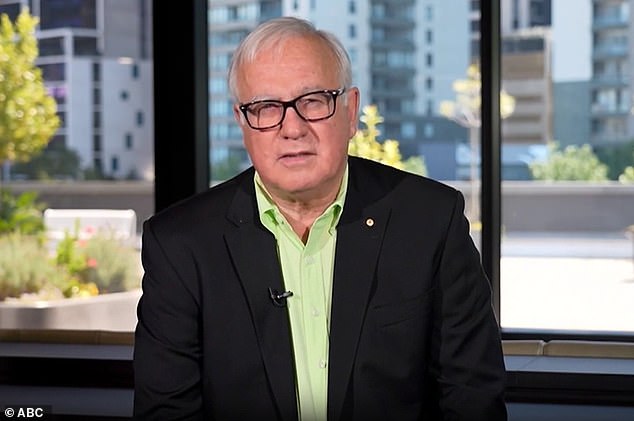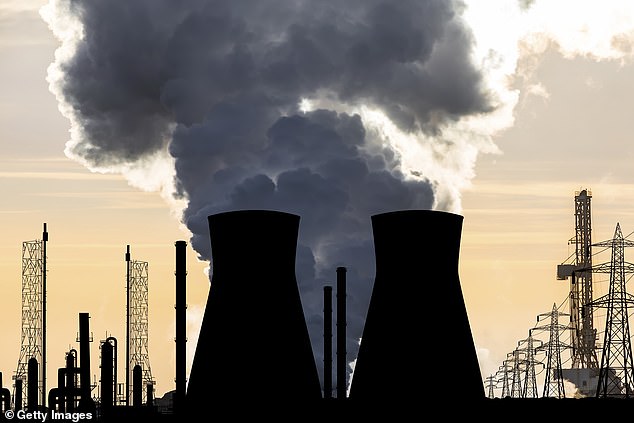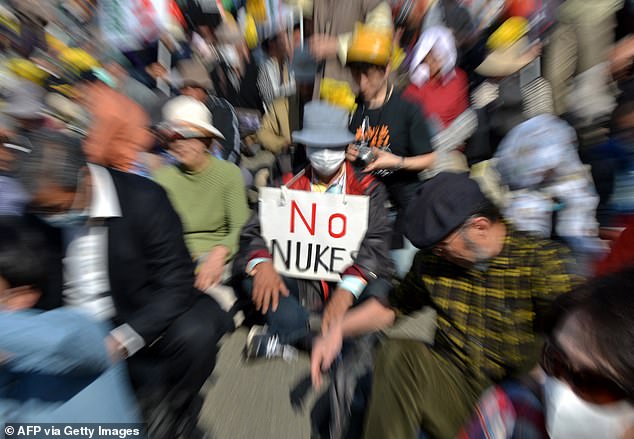ABC economics guru Alan Kohler has said Australia’s nuclear ban “makes no sense” and the energy source could be economically viable in Australia in the future, even if it is not now.
“There is nothing particularly wrong with nuclear energy, many countries use it and Australia happily sells uranium to them,” Kohler wrote in his column for The New Daily on Thursday.

ABC economics guru Alan Kohler says it’s time to lift Australia’s ‘absurd’ nuclear power ban
“Plus it’s carbon-free, which is good.”
Kohler traced the origin of the ban to the Howard Coalition government’s acceptance of it in 1998 as a trade-off to get the Greens to allow the construction of a nuclear research reactor at Lucas Heights, near Sydney.
“And here we are, a quarter of a century later, still arguing pointlessly about it,” Kohler wrote.
“What’s more, the argument has a religious overtone, with evangelists, unbelievers and agnostics.”
“You might think that the main reason Labor removed the ban is that defending nuclear generation is the Coalition’s only energy policy; Without being against the ban imposed by the coalition itself, I would have no policy at all and would have to think of something sensible,” he explained.
Despite wanting the ban lifted, Kohler did not believe nuclear power plants were currently economically viable and said there was “no danger” of one being built any time soon.
He said that despite Opposition Leader Peter Dutton eyeing the prospect of building small modular reactors (SMRs), which are about the size of a shipping container, they have not yet been proven to be commercially viable.
“In November, the US company developing the world’s most advanced commercial SMR project in Utah, NuScale Power, abandoned the project due to a 70 percent cost increase,” Kohler wrote.
“It just doesn’t add up.”
However, he admitted that the nuclear economy numbers could align in the future and that “it should be a business decision, not a political one.”


Kohler noted that many countries use nuclear energy and that it produces no CO2 emissions.
Kohler believed that the endless debate over nuclear power was “a distraction from the real work of addressing climate change and the transition to renewable energy,” including whether there should be a carbon tax.
He said with renewables, “particularly rooftop solar”, set to supply 80 to 90 per cent of Australia’s energy, the government could consider subsidizing nuclear power to provide the rest.
“Geothermal, biomass or wave energy are possible, but it would also be worth including a couple of small modular reactors, because they can run day and night,” he wrote.
“Nuclear power could be a small but useful addition to Australia’s electricity generation, but only with some government money behind it.”
Earlier this month, Dutton cast the upcoming election as a showdown between nuclear power and renewable energy as key to reducing greenhouse gases in Australia.
Dutton told reporters in Adelaide that the renewable energy favored by the Albanese government will struggle to bring Australia to the bipartisan goal of net zero carbon emissions by 2050.
He said countries similar to Australia were making the move to nuclear energy.
“We need to have a mature conversation about nuclear energy,” Mr Dutton said.
‘It is the latest technology that has zero emissions and can consolidate renewable energy in the system.


Australia’s nuclear power ban has been in place since 1988, when it was instigated as part of a deal between the Howard Coalition government and the Greens.
“There are 20 countries similar to ours… that have a nuclear industry or are committed to having one,” Dutton said.
The Coalition has begun looking at six potential sites to locate atomic energy and believes converting decommissioned coal-fired power stations into nuclear plants would be a good option.
Dutton has previously argued that nuclear power was a “cheap technology”.
“The nonsense (Energy Minister) Chris Bowen is talking about nuclear being expensive compared to wind and solar is a nonsense argument,” Mr Dutton said.
“We have to stick to facts rather than emotions on this issue, and we are going to lose industry, there will be foundries and others closing under this government, jobs will go overseas and emissions will still air.
“If we want a situation where we are going to have blackouts, brownouts and rationing like we are seeing in Germany, then let’s continue down the path the government is taking us.”

